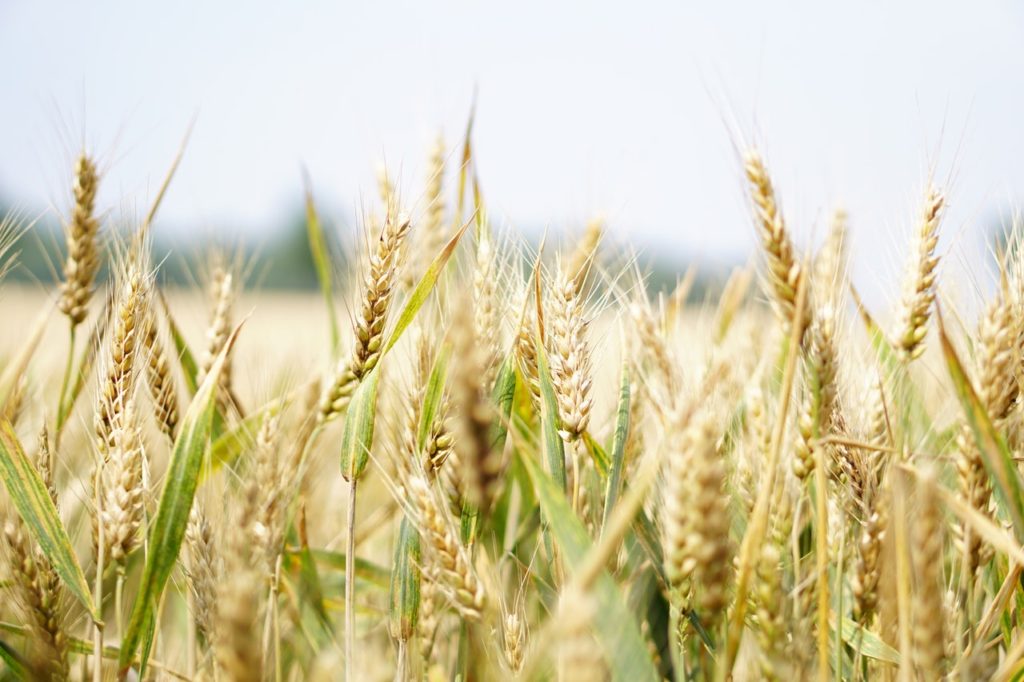Gluten: To Eat, Or Not to Eat
Lisa Colombo, PT, DPT


As a pelvic floor PT, I often field questions related to diet, since what we eat can directly affect bowel and bladder function. Though I am not a licensed nutritionist or dietician, it is important to understand how certain foods can affect your body. You’re probably familiar with the saying “you are what you eat”–as I say that the image comes to mind of a person dressed like a donut–but what we eat shouldn’t be considered solely because of a number on the scale or how we think we look. Food truly is the fuel for our body. This topic really opens up a whole can or worms, but I want to focus on one molecule specifically that can wreak havoc on the body: gluten.
It wasn’t until I started having bloating and GI issues myself when I researched gluten and how it affects the body. What I found was eye opening. Spoiler alert: gluten does nothing good. Zip, zero, nada.
So what is gluten, exactly? Basically, gluten is a general name for proteins found in wheat, rye, and barley. It acts as a glue to help hold food together (think of a nice chewy pizza crust, yum). To understand what the concerns with gluten are, I turned to Dr. Tom O’Bryan. According to this world-renowned expert in the field of gluten disorders, he says, “No human can process gluten.” Come again? No one? Yup. Not a single one of us.
If none of us can process gluten, but it’s in a lot of things we eat, how is it moving through our bodies and what is it doing as it travels along? Well, he quickly answered those questions for me, too. The wheat/rye/barley of today which contains gluten is not the same as it was way back when it was first used by civilization. It has been hybridized many times, and we are now finding this new version is hard to digest, mostly because gluten is a large molecule that your body can’t break down. Because of this, it ends up poking holes through the lining of your gut. These holes can allow partially digested food and toxins to penetrate into our tissues causing an inflammatory response. Over time, this inflammation can cause up to 300 symptoms!
The most well known gluten-related issue is Celiac disease (an autoimmune disease where the body has a physical reaction to eating gluten). But just because you don’t have severe GI symptoms doesn’t mean you are in the clear. Gluten-related disorders can appear in any tissue of the body. Have brain fog or joint pain? These can be attributed to a gluten sensitivity, too. Dr. O’Bryan states that “only a small percentage of the population has been diagnosed with a gluten-related disorder, but that a very large portion of the population has symptoms that may be caused by a sensitivity to gluten.”

Now, I don’t share all of this to scare you and make you start throwing out your pantry. I share this because I myself have seen a big difference in how I feel just by being mindful of avoiding gluten (and dairy, but that’s a topic for another day). It can seem overwhelming at first. When I went grocery shopping after deciding I was going gluten free, I stood for over an hour in front of the shelves dazed and confused wondering how I was supposed to feed myself. It was a rough start going cold turkey. Which is why I recommend this: as you finish an item, replace it with a gluten free option. This makes it MUCH easier.
Is it true that some of the gluten free options taste meh? Yes. But let me tell you, there are some awesome options out there. Once you get the hang of finding where the gluten free stuff is in the store, the process will become your normal routine. Most restaurants now have gluten-free options on their menus as well so you don’t have to forgo dining out.
A few last things to consider; just because you opt for the gluten free version doesn’t mean it’s healthy. (A donut is a donut, gluten free or not.) We could all stand to eat more veggies and fewer processed foods. But I hear you, sometimes, there is no substitute that quite matches your favorite dessert, like my Mom’s monkey bread that she makes once a year at Christmas. You can bet I dove into that without hesitation, though I did pay for it later (I’ll spare you those details). So let yourself indulge in the cookie, cake, pizza etc, but chances are you will notice a difference in how you feel after you eat it, which will keep you motivated to maintain your gluten free lifestyle.
If you are interested in learning more about gluten and gluten related concerns, I highly recommend checking out Dr. Tom O’Bryan’s website: thedr.com.
